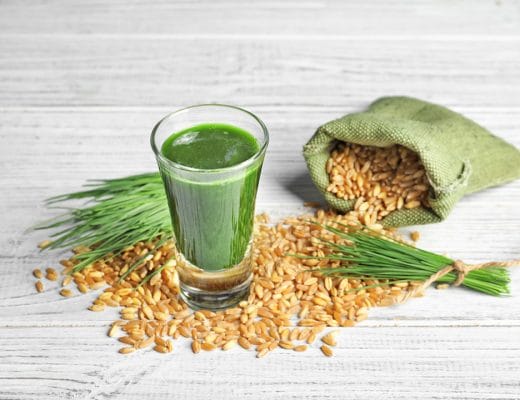Let’s take a closer look at the possible causes of halitosis (bad breath) and how to treat bad breath naturally.
Halitosis, better known as bad breath, is an embarrassing problem that approximately 65% of North Americans suffer from.
5 Causes of Bad Breath:
1. Poor Oral Hygiene
Decaying food particles, plaque, and bacteria trapped in the mouth are the leading causes of bad breath and can lead to serious periodontal disease.
It is essential to have your teeth cleaned professionally at least every 6 months, to floss before bed, and to brush your teeth thoroughly every morning and night.
2. Dryness in the Mouth
This is a common underlying cause of bad breath.
You can increase your production of saliva and keep your mouth hydrated by eating regular meals and drinking adequate water per day.
To calculate your daily water requirements, divide your weight in pounds by 2. This is how many ounces of water you need each day.
Herbal teas count towards your water intake and peppermint tea is an excellent choice to combat bad breath.
Quick Tip: Give your liver some extra love by adding detoxifying lemon and ginger to your water.
3. Poor Digestion
Proper digestion can prevent bad breath.
If your digestion is sluggish or impaired, there are many natural ways to support healthier digestion.
To beat bad breath naturally and improve gut health, avoid processed foods that are high in sugar (as much as possible). The sugar feeds the bacteria that causes bad breath.
Also, aim for 30-40 grams of fibre per day to help keep your bowels moving.
If you suffer from digestive problems (gas, bloating, heartburn, diarrhea, constipation, or abdominal pain/cramping), you may experience bad breath. Try to eat foods that are gentle on your digestive system. A blood test can help identify foods to avoid and foods to eat.
Speak to your Naturopathic Doctor about the IgG Food Intolerance Blood Test to identify these foods.
4. Smoking
This unhealthy habit will surely lead to bad breath, periodontal disease and/or gum disease. In this article, I share 4 simple steps that have helped many of my patients quit smoking.
5. A Serious Medical Condition
In some cases, bad breath is difficult to treat and is not linked to any of the above. People with kidney failure, diabetes, infections, or eating disorders may also suffer from halitosis and are advised to talk to their doctor.
I interviewed Joanna Miloszewski, B.Sc., a dental hygienist, to find out more about this common condition. Here’s what she had to say.
The vast majority of halitosis is related to poor oral care. A lot of people don’t floss or brush their teeth properly. The mouth acts like an incubator for bacteria and people need regular dental cleansing.
She encourages her patients to brush and scrape their tongue daily and suggests that this simple practice provides instant breath improvement.
She also recommends using an anti-bacterial mouthwash, because in most cases, bacteria are the underlying cause of bad breath.
Miloszewski believes in educating her patients on the importance of proper dental care and she provides tools to help them keep up with healthy dental habits.
The only way people will incorporate something into their lifestyle is if they understand what is happening in their mouth. Gum and Listerine mask the odour, but don’t solve the problem.
As an ND, I believe in treating bad breath naturally and addressing the root cause. Rather than focusing on the symptom, I always work with my patients to explore the underlying cause.
Since bad breath is simply the symptom of an underlying issue, identifying the cause is the first step in treating this problem.







No Comments